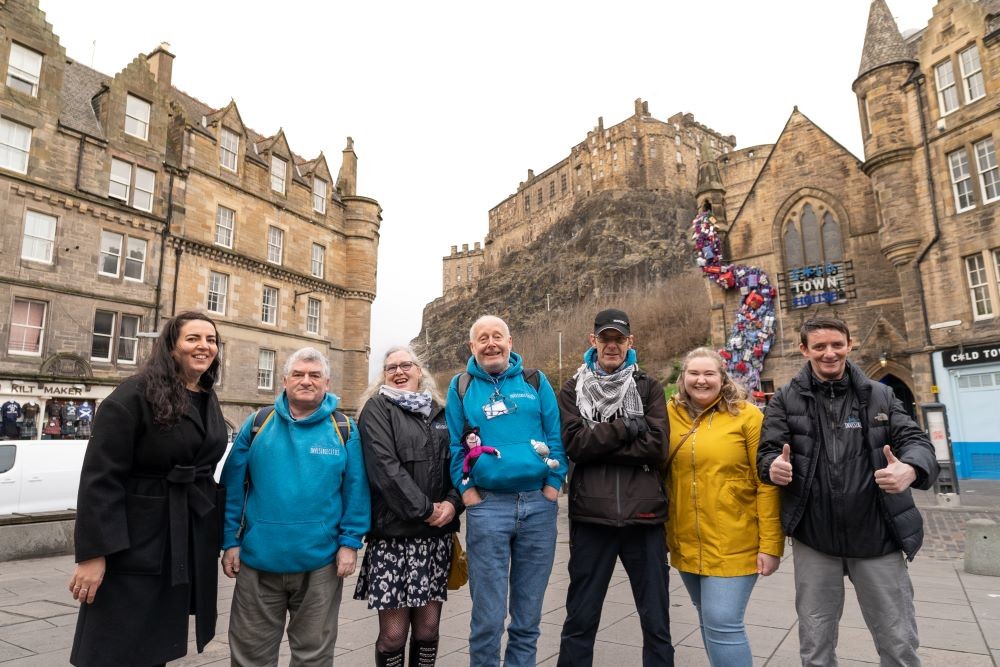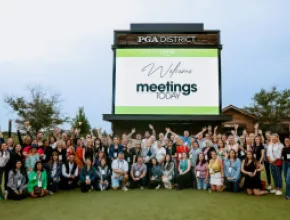Can travel and meetings have a positive, meaningful impact on the world? Zakia Moulaoui Guery thinks so.
The United Nations estimates that nearly 150 million people worldwide experience homelessness, while millions more lack adequate housing. Enter Invisible Cities, the award-winning, U.K.-based tour company Guery founded in 2016 with a mission to train people who have experienced homelessness to become walking tour guides of their own city.
Starting in Edinburgh, Scotland, and expanding to six more locations around the U.K., Invisible Cities goes beyond your basic city walking tour, offering an alternative option to both visitors and locals alike. Through its tours, which are available for group bookings, you can see a place from a different point of view, face and break down stigmas you might have around social issues, and invest time and money into transforming lives.
An Idea Is Born
Before founding Invisible Cities, Guery honed her experience in events with the Homeless World Cup, an organization that uses football (soccer) to support and inspire people experiencing homelessness to change their own lives, and to also change the attitudes and perceptions toward people experiencing homelessness.
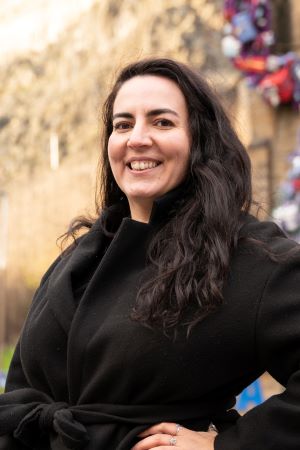
“That's where I really understood more about the issue of homelessness. I probably came into that role with a lot of stereotypes and stigma as well,” Guery said. “And then I’d meet people who would say, ‘I lost a parent and ended up homeless,’ or ‘I lost the job,’ or ‘I was ill.’ These different situations made me understand that it's not one-story fits all, and that everybody has different issues and stories, but also different gifts and skills and dreams.”
Part of Guery’s main responsibilities was to organize the Homeless World Cup event, which is hosted in a new location every year. Her work brought her to locations like Mexico, Poland, The Netherlands and Chile, and sparked a passion for travel.
Following her time with Homeless World Cup, Guery pondered what was next.
“When I thought about what I would like to do next, and what kind of impact I would have wanted to have in the world, I knew that travel would play a big part in that, but I didn't really know what that would be like,” she said.
Inspiration struck in 2015 in Athens, Greece, where she came upon a local publication that employed people who had experienced homelessness who also gave out tours to complement their income. An idea started to form.
“And I thought, ‘Oh, this is the combination of travel and supporting people.’”
Guery traveled home to Scotland with the intention of bringing the idea to organizations on the ground—with limited time and resources though, no one could take on the project full-time. So, Guery did it in the reverse: started a company from the ground up and leaned on organizations in the community for support.
Seven years later, Invisible Cities operates in six cities across three countries (Scotland, England and Wales) and has trained 118 people. In 2024, it hopes to launch tours in the Scottish Borders.
[Related: Lone Star to L'étoile: Navigating the European Event Industry]
Invisible Cities Tours
Invisible Cities offers groups a city tour that covers sites of historical interest, but the tour also stays true to its name—showcasing the “invisible” sides of a city and the unknown history and knowledge behind it.
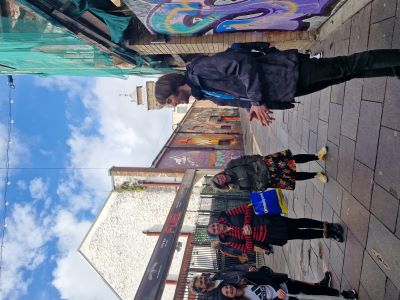
Each tour is unique, designed by the guide who then chooses the theme and content for the tour. The guides provide truly individualized tours, often sharing their own background stories, personal experiences or topics they are passionate about in the city. In Edinburgh, for example, take the Crime and Punishment tour and learn about the dark stories of the city’s streets, or the Real Women tour, where you’ll learn about notable women in Edinburgh’s history from mothers and doctors to witches and murderers.
Tours can accommodate up to 25 people, but Guery said Invisible Cities is well-versed in working with larger groups as big as 350 and can have multiple guides at the ready to stagger tour start times so everyone can participate. Pick-up spots can be arranged at the hotel, conference center or anywhere else that is convenient for the group.
“We are super flexible—I understand the need to be flexible from a planning perspective,” Guery said, harkening to her past experiences as an event planner. “And it's entirely up to the group in terms of what they want to do.”
She mentioned that Invisible Cities also has “add-on” activities that groups can work into their experience. Someone from their team can deliver a presentation about Invisible Cities and homelessness before or after the tours, or her team can even help groups put together care packages or boxes. For an upcoming group this spring, they are packaging well-being boxes and donating them to women’s shelters around the city.
By participating in the tour, groups are helping to support guides in their careers, promote the larger mission of Invisible Cities and bring awareness to important social issues in the cities in which they meet.
[Related: A British Icon Restored and More Global Hotel Upgrades and Openings]
Invisible Cities Impact
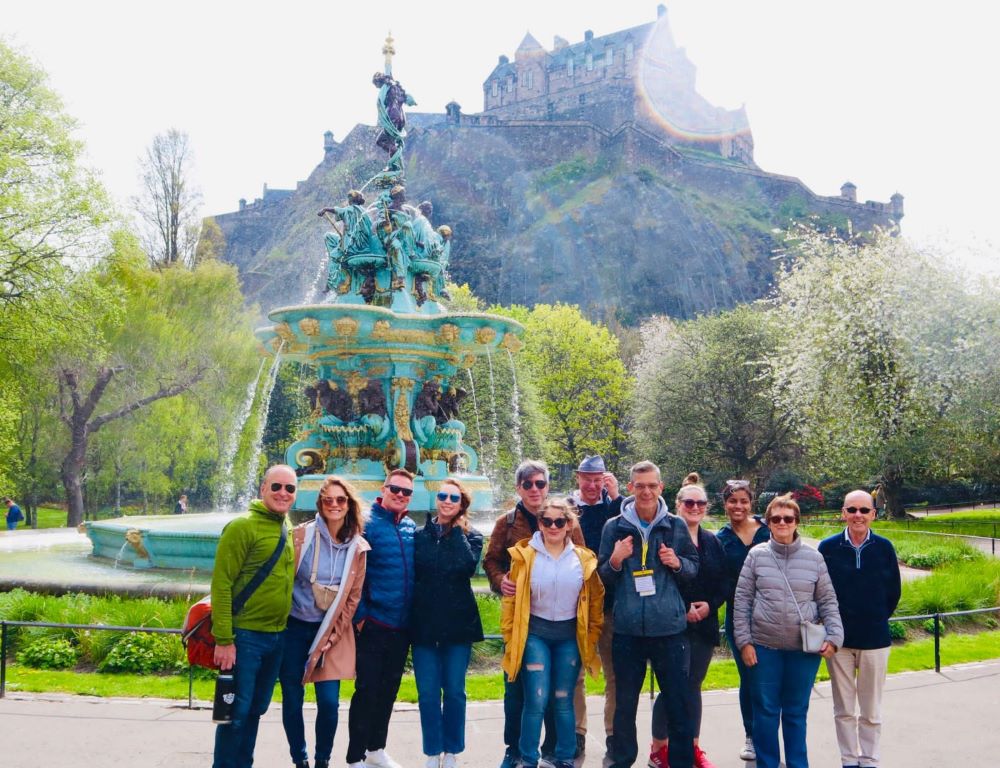
Invisible Cities describes itself as a social enterprise that aims to break down labels and stereotypes surrounding homelessness. In 2023, in its annual report, Invisible Cities reported that 98% of participants surveyed had a changed view of homelessness.
But what Invisible Cities does goes beyond simply training people to be guides. They help their trainees with public speaking, customer service, confidence building, family reunification and even support them in gaining other employment.
“If you want to train with us, there is absolutely no obligation to become a guide,” Guery said. While she is happy when they hire new guides at the completion of the training program, she also acknowledges that Invisible Cities can help open up many new doors.
“A lot of [the training] is based on transferable skills, because it's aimed at having opportunities in other areas than just guiding. So, if you want to be working in a hotel, in a cafe, in a restaurant, we learn about customer service, we learn about interaction with people, we learn about body language, we learn about public speaking, all of this,” she said. “We also do interview readiness. We do an interview, usually with somebody who's also in the tourism industry in the room.”
This year, Invisible Cities also launched a grant program in partnership with homelessness charity, Crisis. It’s open to every past and present trainee, guide and supported volunteer, in any of its cities, and provides funding for courses, starting up businesses or other opportunities to gain employment.
This also bolsters Invisible Cities’ long-term goal for their employees: to foster an inclusive and empowering community and encourage the guides to continue to build on their acquired skills into their next career.
“We want people to be empowered through the stories they tell, but also through the things that they do,” Guery said.
The Future of Invisible Cities
Invisible Cities has grown quickly in seven years, now operating in Edinburgh, Scotland; Glasgow, Scotland; Manchester, England; Liverpool, England; York, England; and Cardiff, Wales. Ultimately, Guery would like to see it expand beyond the U.K. into Europe, and maybe after that, even the U.S. While some of that international expansion might be a ways off, what’s imperative for Guery, at the end of the day, is to grow the mission.
“What's important to us is to still spread the message and break down the stereotype around homelessness.”
Read this next: Events Veteran Gives Back By Serving His Country



